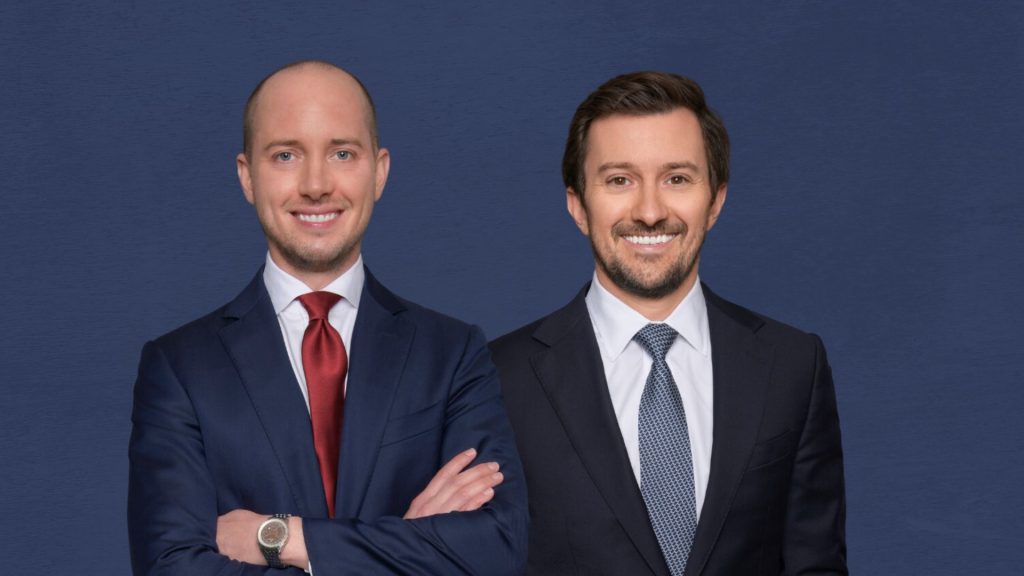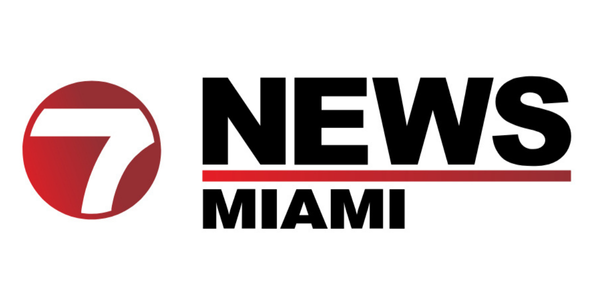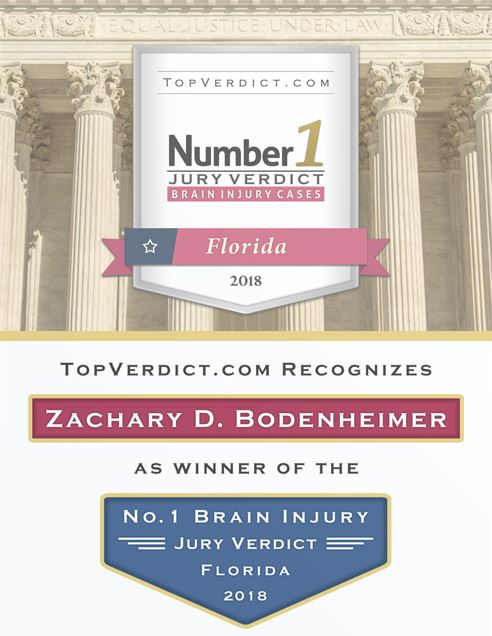Florida Human Trafficking Civil Lawsuit Attorneys
Human trafficking is a horrifying and often hidden crime that thrives in secrecy and silence. In many cases, this exploitation is not carried out in the shadows alone, but within plain view: at hotels, restaurants, stadiums, airports, nightclubs, apartment complexes, and other commercial properties that allow or ignore repeated trafficking activity.
Under the Trafficking Victims Protection Act (TVPA), victims have the right to pursue justice not only against traffickers themselves, but also against the businesses and property owners who enabled or profited from their abuse. This includes hotels, landlords, and corporations that knew, or should have known, that sex trafficking was occurring on their premises and failed to act.
At Flanagan & Bodenheimer Injury & Wrongful Death Law Firm, our Miami sex trafficking attorneys are deeply committed to helping survivors hold these entities accountable in civil court. We offer a safe, compassionate, and confidential environment where survivors and families of victims can begin the process of healing through legal action.
If you or someone you love was trafficked in Florida and you believe a business entity allowed it to happen or failed to intervene, call 305-638-4143 for a 100% private, free consultation. We never charge fees unless we recover compensation.

Florida Human Trafficking Statistics
Florida consistently ranks third in the nation for reported human trafficking cases, according to data collected through the National Human Trafficking Hotline. The state’s unique combination of factors—tourism, population diversity, major transportation hubs, and a thriving hospitality industry—creates a perfect storm for traffickers seeking to exploit vulnerable individuals.
According to the Florida Department of Children and Families’ 2023–2024 Annual Report, more than 2,100 reports of human trafficking involving minors were received statewide. Despite increasing public awareness, the burden of protecting Florida’s children from predators and the systems that enable abuse continues to fall on families, communities, and the justice system.
Between July 1, 2023, and June 30, 2024:
- 2,137 human trafficking reports were made involving 1,592 children.
- 92% of these reports were related to child sex trafficking (CSEC).
- 473 cases were verified, meaning the state found sufficient evidence of trafficking.
More than 80% of victims lived at home at the time of the report, not in foster care. This disproves the long-held myth that trafficking mainly targets foster children. This means it can happen anywhere, including in local communities and residential neighborhoods.
The report highlights that child sex trafficking is not isolated to one region of Florida. While urban areas tend to have higher concentrations due to population size, rural and suburban counties also reported significant trafficking activity. According to the report:
- Miami-Dade County led the state with 258 reports involving child trafficking.
- Broward County followed with 218 reports, a consistent trend in prior years.
- Hillsborough County saw 156 reports.
- Other counties with high report volumes included:
- Orange County – 127 reports
- Duval County – 114 reports
- Palm Beach County – 98 reports
- Pinellas County – 85 reports
- Orange County – 127 reports
This data shows the widespread nature of trafficking across Florida and the urgent need for civil accountability for businesses that repeatedly ignore red flags.
One of the most critical insights from the report is that most children who fall victim to trafficking are not kidnapped by strangers, contrary to popular media portrayals. Instead, they are often groomed, manipulated, and exploited by people they know, including acquaintances, romantic partners, neighbors, or even family members.
According to the 2023–2024 report:
- In 35% of verified cases, the alleged trafficker was the child’s current or former intimate partner.
- In 17% of cases, the trafficker was known to the child but not a caregiver.
- Only 6% of cases involved traffickers with no known connection to the victim.
Data from Created Gainesville, a nonprofit organization focused on prevention and recovery for trafficking victims, paints a harrowing picture:
- The average victim is sold between 15 and 40 times per day.
- The average age range for first-time trafficking victims is between 11 and 17 years old.
- 88% of reported cases involve online communication, including ads and messaging apps used to solicit or sell victims.
Where Sex Trafficking Commonly Occurs in Florida
Sex trafficking does not always happen in hidden, remote places. In fact, many traffickers operate in plain sight, at everyday establishments that look legitimate to the average person. The reality is that hotels, motels, and short-term rentals are some of the most common locations where trafficking victims are exploited.
In South Florida, including areas like Miami, Fort Lauderdale, and Pompano Beach, the tourism and hospitality industry provides traffickers with transient spaces to carry out their crimes undetected.
Examples of places where sex trafficking has been known to occur include:
- Budget motels, extended stay hotels, and roadside inns
- Vacation rentals (Airbnb, VRBO), timeshares, and short-term private rentals
- Apartment complexes with negligent landlords
- Mobile home parks and group housing such as sober living homes
- Nightclubs, bars, strip clubs, and adult entertainment venues
- Massage parlors, nail salons, and beauty shops used as fronts
- Truck stops, gas stations, and rest areas on I-95, I-75, and I-10
- Bus terminals, train stations, and airports
- Shopping malls, beach boardwalks, and tourist-heavy areas
- Restaurants, laundromats, car washes, and other service-based businesses
- Schools, college campuses, youth shelters, and foster homes
In many cases, employees at these businesses may have observed red flags such as frequent male visitors, signs of physical abuse, or individuals showing signs of fear and control, but failed to report the situation or take action.
Can You Sue a Hotel, Apartment, or Business for Enabling Sex Trafficking in Florida?
Yes. Under Florida Statutes § 787.061, and Federal law, 18 USC 1595, victims of sex trafficking have the right to bring a civil lawsuit against any entity that knew or should have known that they participated in or benefited from the trafficking. This includes hotel chains, property management companies, landlords, or business owners who ignored warning signs that sex trafficking was occurring in their business or if their employees actively enabled the traffickers.
A business may be liable if:
- It knew or should have known that trafficking occurred repeatedly on its premises
- Its security protocols were inadequate, or non-existent, despite complaints or warnings
- Employees failed to intervene or report suspicious activity (e.g., a hotel clerk seeing an adult check in with multiple young girls and not contacting authorities) and having visits from several unregistered guests
- The business financially profited from renting rooms or units to traffickers
Our legal team can help you investigate whether a business’s negligence or profit-seeking behavior contributed to enabling or facilitating sex trafficking. Victims may be entitled to damages for pain and suffering, psychological trauma, loss of freedom, medical treatment, and more.
Key Evidence in Civil Sex Trafficking Cases
Evidence that can support a trafficking lawsuit includes:
- Hotel Records: Guest logs, receipts, and payment history showing repeated suspicious rentals.
- Witness Testimony: From staff, guests, or others aware of the trafficking.
- Surveillance Footage: Video capturing activity consistent with trafficking.
- Expert Testimony: Explaining red flags the business should have recognized.
- Victim’s Account: Detailed statements about the trafficking and the hotel’s role.
The standard of proof in civil cases is preponderance of the evidence, meaning the victim must show it is more likely than not that the business’s actions or inaction facilitated the trafficking.
Businesses often defend these cases by claiming they had no knowledge of the trafficking or that they cannot be held responsible for third-party criminal acts. Overcoming these defenses requires compelling evidence of ignored red flags, direct knowledge, or systemic failures in staff training and security protocols.
Causation can also be complex when multiple parties are involved. That’s why it is critical to work with attorneys who understand how to link the business’s negligence directly to the survivor’s harm.
Statute of Limitations for Human Trafficking Civil Claims in Florida
Because of the complex nature of these claims there are several different statutes of limitations that may apply to each different claim. For example, under Federal Law 18 USC 1595(c), the statute of limitations for certain civil claims against various entities that participated in sex trafficking, including hotels and other who knew or should have known that sex trafficking was occurring on their property, is 10 years after the cause of action arose, or 10 years after the victim turns 18 years old.
Florida Statutes § 95.11(8) allows filing certain claims against abusers up to 7 years after turning 18, or 4 years after leaving the abuser’s control, or 4 years after discovering the injury and its connection to the abuse, whichever occurs later. In cases involving intentional conduct or trauma-related memory issues, longer timeframes may apply. It’s important to speak with an attorney as soon as possible to preserve evidence and ensure your rights are protected by analyzing which claims you may have and to make sure that your claims are filed before the statute of limitations expires.
Frequently Asked Questions
What is human trafficking under Florida law?
Human trafficking involves the use of force, fraud, or coercion to exploit someone for labor or commercial sex. Under Florida Statute § 787.06, both sex and labor trafficking are criminal offenses, and victims have a right to pursue civil remedies against those who enabled or profited from their exploitation. There is a similar federal law, 18 USC 1595 that permits victims to bring claims under federal law against hotels and other companies that profited from sex trafficking.
What evidence do I need to bring a civil trafficking claim?
Evidence may include police reports, witness statements, medical records, text messages, online ads, surveillance footage, hotel records, or testimony from support organizations. Our attorneys work with experts to build strong cases even years after the abuse occurred.
Do I have to face my trafficker in court?
Not necessarily. Many cases are resolved confidentially through settlements. If trial is necessary, your legal team can take steps to protect your identity and safety throughout the process. Most of these cases are brought against hotels, motels, gentlemen’s clubs and other companies that provide a place for the sex crimes to occur. The theory against these companies is that they benefited from the sex crimes by accepting payment for the room and failed to prevent the crime from occuring in their business.
Can I file a claim if my trafficking happened years ago?
Yes. Florida law and Federal law extends the statute of limitations for human trafficking victims. Many survivors don’t come forward until years after the abuse, and the law recognizes the lasting trauma that can delay reporting.
Is my case confidential?
Our law firm handles all human trafficking claims with the utmost confidentiality. Federal law and Florida law also allows victims to use pseudonyms like “Jane Doe” and to seal certain records to protect survivor privacy.
Do I need to report the trafficking to law enforcement to file a civil claim?
No. While a police report can help support your claim, it is not required to file a civil lawsuit. Many survivors never reported what happened due to fear, trauma, or manipulation.
Can your firm help me if I was trafficked in Florida but now live elsewhere?
Yes. We represent clients throughout Florida and across the country who were trafficked in Florida. We can work with you remotely and pursue justice even if you’ve relocated for safety or healing.
Do I have to pay legal fees up front?
No. We work on a contingency fee basis, meaning you owe us nothing unless we win your case. Your consultation is completely free, and there are no upfront costs.
Free Consultation With a Miami Human & Sex Trafficking Attorney
At Flanagan & Bodenheimer, we understand the deep trauma and long-term harm caused by sex trafficking. We’re here to fight for justice and hold accountable any business or entity that facilitates or enables human trafficking through negligence or greed.
Our firm proudly serves clients throughout Florida, including Miami, Hollywood, Fort Lauderdale, West Palm Beach, Tampa, and Orlando. We maintain a small caseload to provide personalized, dedicated representation in every case. We offer free, confidential consultations and work on a contingency fee basis, meaning you don’t pay unless we win.
Call us at 305-638-4143 or contact us online for a free, confidential consultation.












